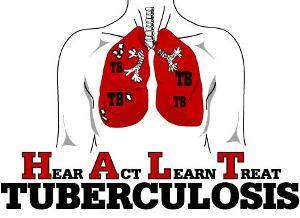
The USAID Tuberculosis South Africa Project (TBSAP) are stepping up awareness about TB prevention and treatment, by taking the message to taxi ranks, shopping centres and sports stadiums in South Africa’s KwaZulu-Natal province.
“KwaZulu-Natal is carrying a heavy burden of TB and of the twin burden of TB and HIV. We need to accelerate efforts to prevent and treat TB. TB is curable and we need to do everything we can to stop this epidemic,” said KwaZulu-Natal Health MEC, Dr Sibongiseni Dhlomo.
TBSAP, which is funded by the United States Agency for International Development (USAID), has been holding activation campaigns in KZN, and other provinces to raise awareness about the importance of getting tested and treated for TB.
In partnership with the Department of Health, TBSAP recently set up tents and mobile information and screening stations outside Durban’s Moses Mabida stadium where Bafana Bafana was playing Guinea Bissau. People with presumptive TB were referred for testing, while thousands of pamphlets were handed out.
South Africa is holding its national World TB Day commemoration in Bloemfontein on Friday, where the country’s Deputy President, Cyril Ramaphosa will launch the 2017 – 2021 National Strategic Plan on HIV/Sexually Transmitted Infections/TB.
South Africa has one of the highest TB incidence rates in the world. The awareness drive is in line with the World Health Organization’s “End TB” strategy which aims to end the global TB epidemic by 2035.
“One of our key problems is getting people to complete their treatment. Often you feel better and stop coughing after you’ve taken the treatment for some time. But that doesn’t mean the TB has been eradicated. You need to take medication for a full six months even if you aren’t in pain and don’t feel sick,” said Dr Dhlomo while visiting a mobile site at the Moses Mabida stadium.
Defaulting on treatment can lead to drug-resistant TB, which is difficult to treat. People who don’t complete their TB treatment often continue to be infectious.
TB germs are spread from one person to another, through the air. They can be released when a person with TB coughs, sneezes, laughs or sings.
Thabo Pelesane, Department of Health National TB Ambassador, said he was fortunate to be alive after not completing his treatment. He wanted to encourage others to stay the course.
“I’ve been on treatment five times. TB came back time after time because I defaulted on my medication. I felt better so stopped taking it. I am passionate about encouraging people to remain on their TB treatment for the full duration, without skipping a dose of medication. It saved my life.”
Pelesane said he also wanted to break the stigma of TB.
“TB does not discriminate. Anyone could catch it, rich or poor, young or old. Anyone is susceptible to TB. You can get infected in church, in the workplace, in a taxi or bus or at home. The most important thing is to recognise the signs and symptoms and get tested at the clinic. Don’t wait until you’re feeling really sick.”
Typical symptoms of TB include coughing for more than two weeks, unexplained weight loss and drenching night sweats or fever. Other symptoms include weakness, chest pains and other generalised aches.




 2024 elections: Resign if you can't be faithful to party - Sagnarigu NDC PC desc...
2024 elections: Resign if you can't be faithful to party - Sagnarigu NDC PC desc...
 Five arrested, remanded over alleged murder of two police officers at Transacco
Five arrested, remanded over alleged murder of two police officers at Transacco
 Tax exemptions better than incentives for churches – Tax Analyst tell Bawumia
Tax exemptions better than incentives for churches – Tax Analyst tell Bawumia
 Transport Minister sues Law Platform Editor for defamation
Transport Minister sues Law Platform Editor for defamation
 Voter registration: Police arrest NPP Treasurer for Mpohor for registering minor
Voter registration: Police arrest NPP Treasurer for Mpohor for registering minor
 "This nonsense must stop" — Lawrence Tetteh vows to march to Jubilee House over ...
"This nonsense must stop" — Lawrence Tetteh vows to march to Jubilee House over ...
 2024 elections: “If indeed you stand for peaceful elections the time is now for ...
2024 elections: “If indeed you stand for peaceful elections the time is now for ...
 I have the attributes to be president of this country — Bernard Monarh
I have the attributes to be president of this country — Bernard Monarh
 Cecilia Dapaah saga: ‘Turf war’ between AG, EOCO, OSP indicates they’re not ‘cor...
Cecilia Dapaah saga: ‘Turf war’ between AG, EOCO, OSP indicates they’re not ‘cor...
 Ghana will become the first African country to embrace blockchain-powered gover...
Ghana will become the first African country to embrace blockchain-powered gover...
